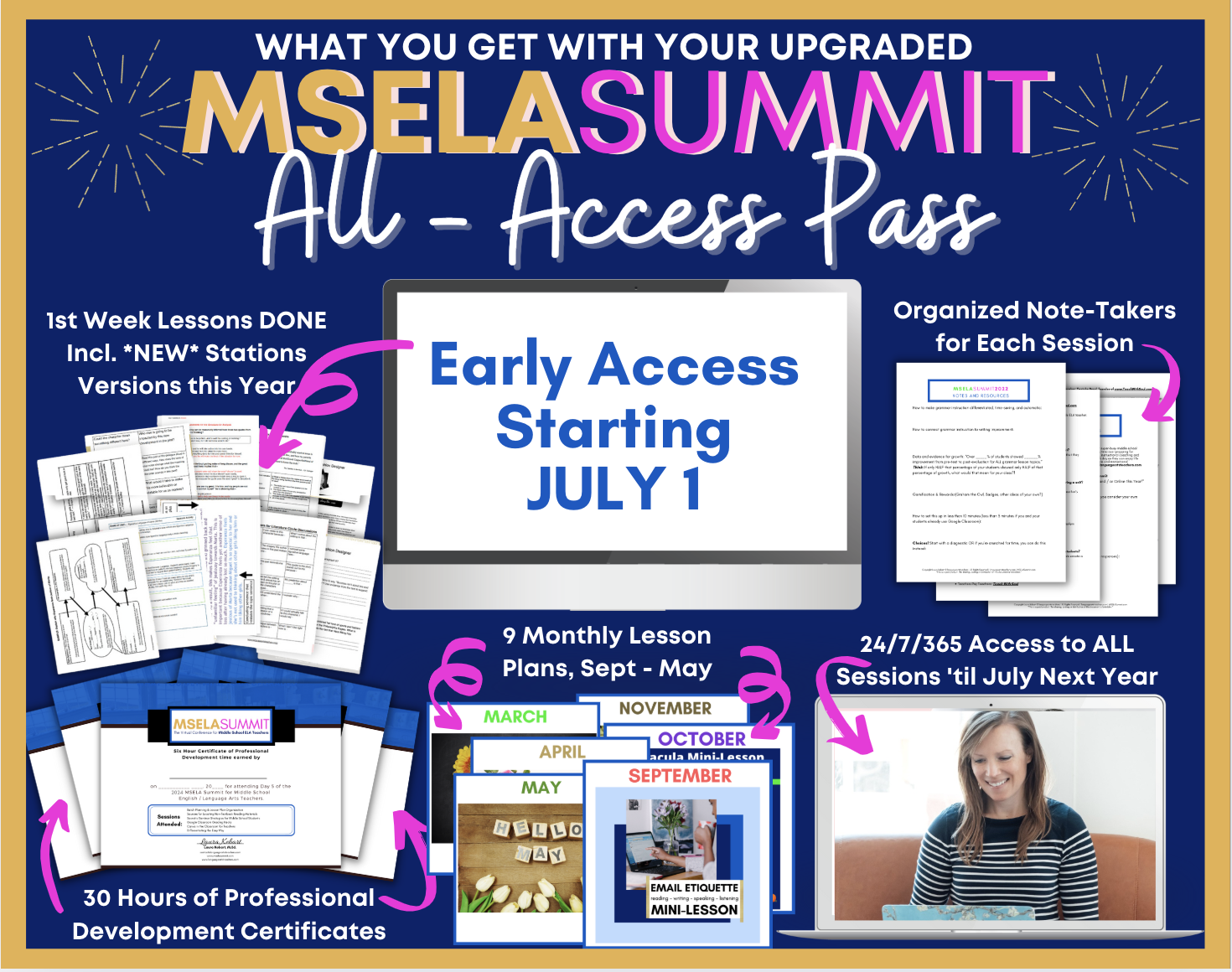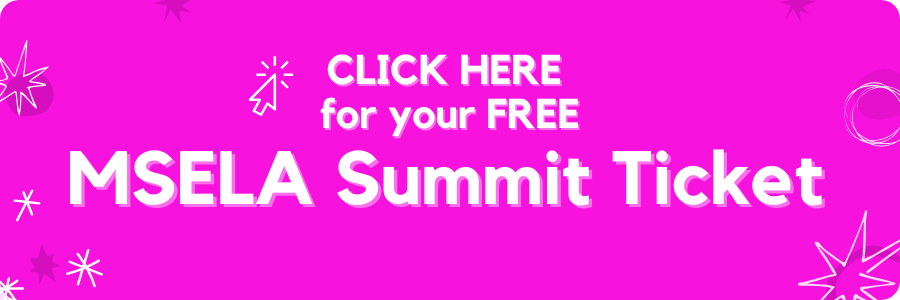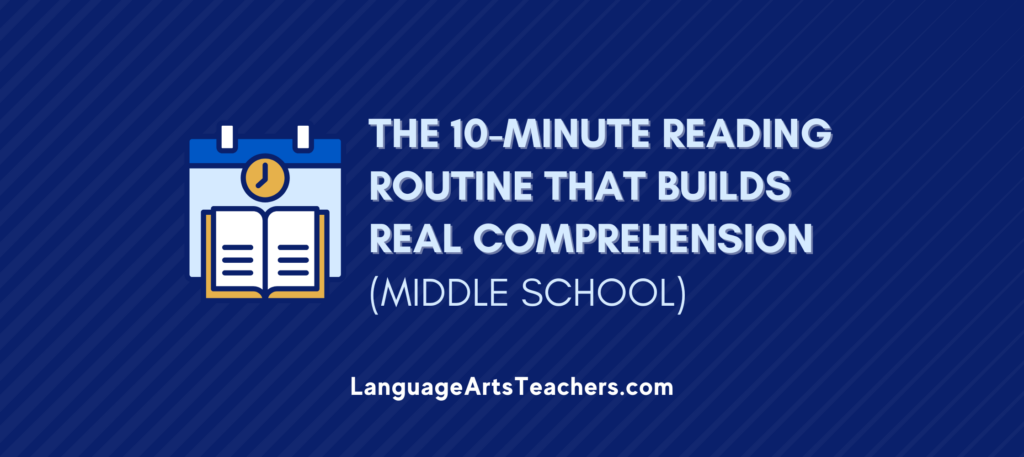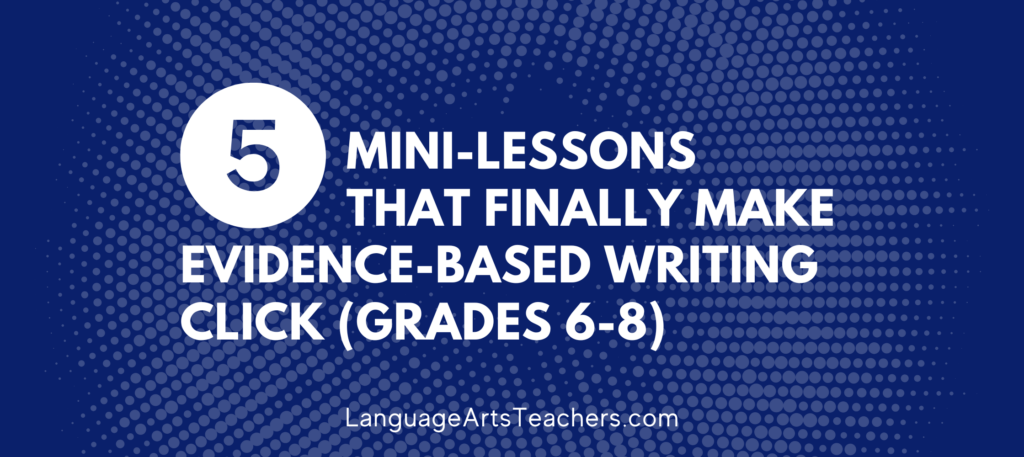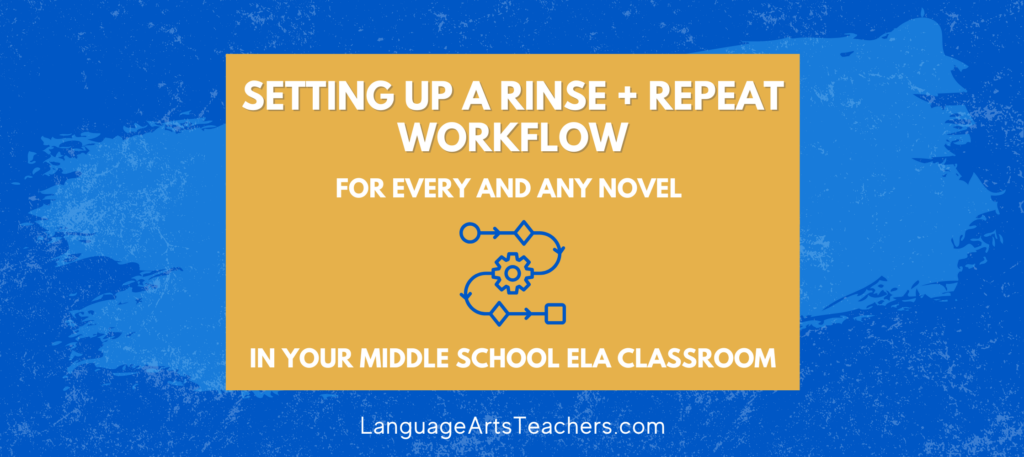Every once in a while, someone low-key mentions something that hits you like a perfectly-timed coffee run—it’s that simple lightbulb moment that makes your teacher-life 1000% easier.
Your first week of middle school ELA can go two ways:
- You’re reading the syllabus. Crickets.
- You have students rotating through low-prep, high-engagement stations that cover typical first week of school topics you have to go over anyway. Crickets? Gone.
Stations (yes, even during the first week of school!) are definitely a game-changer—students are moving, talking, learning the routines… and you get the laid-back, grounding teacher-flow you crave.
Whether you’re new to teaching, new to the grade level, or simply refreshing your classroom vibe this time ‘round—here’s how to start the school year right with your First Week of School Stations plan.
🧭 Station 1: Classroom Scavenger Hunt
Students use a guided scavenger hunt to dig into your classroom expectations—everything from quotes or anchor charts on the walls, to making inferences about what they can / cannot touch or access, to where to find things in the class. It’s a “let’s go over the classroom rules” but in a movement and thinking kind of way that’ll stick
✨Why it works: Students actively learn your classroom expectations instead of zoning out while you explain it all to them.
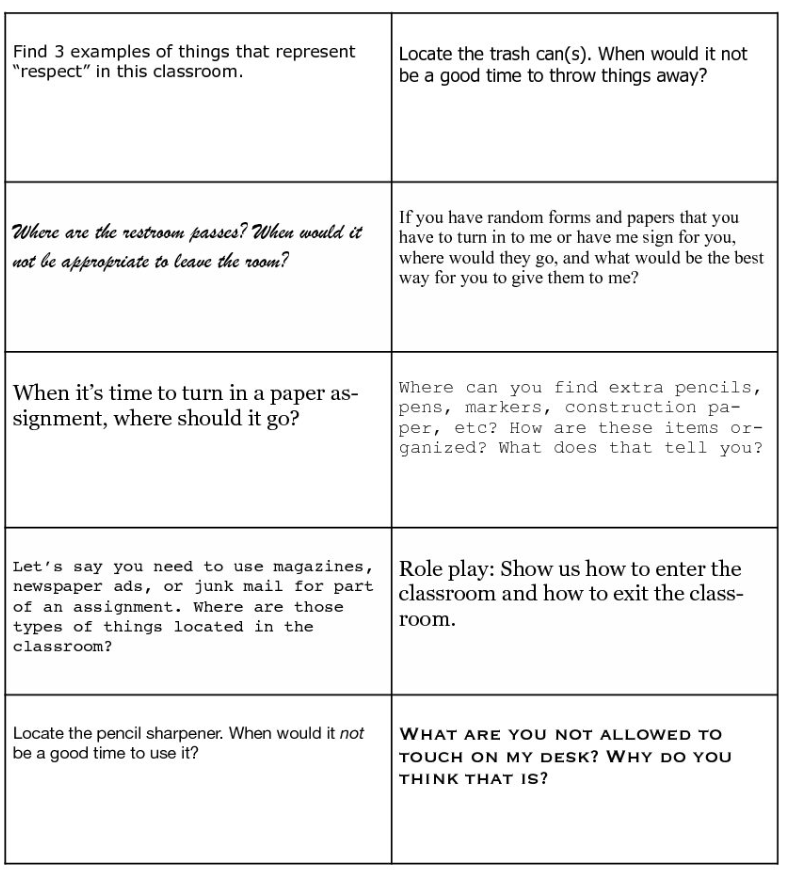
🎨 Station 2: Shel Silverstein Poem & Artwork Media Comparison
Students refer to Shel Silverstein’s quick yet thought-provoking poem called “Masks” about the metaphorical masks we wear that keep us from really connecting with others. It’s incredibly accessible for even the most struggling students while also providing deep considerations for the most advanced students.
In this station, students compare that👆 poem with this piece of artwork, also by Shel Silverstein.
You can give the poem / artwork combo “cold” without any formal introduction or need to frontload anything. Simply put the pair in this station, and then include a few discussion prompts to get them started like the ones below.
For the full set of materials for that station and all the others as well, join us at the MSELA Summit where ALL the first week of school lessons, stations, and setups are provided for you!
🎲 Station 3: The Game of Quotes
This is a no-prep, high-engagement station activity where students use a random quote pulled from a novel (totally out of context) and try to match it to a specific “card” pulled from a stack of cards like the ones I created here:
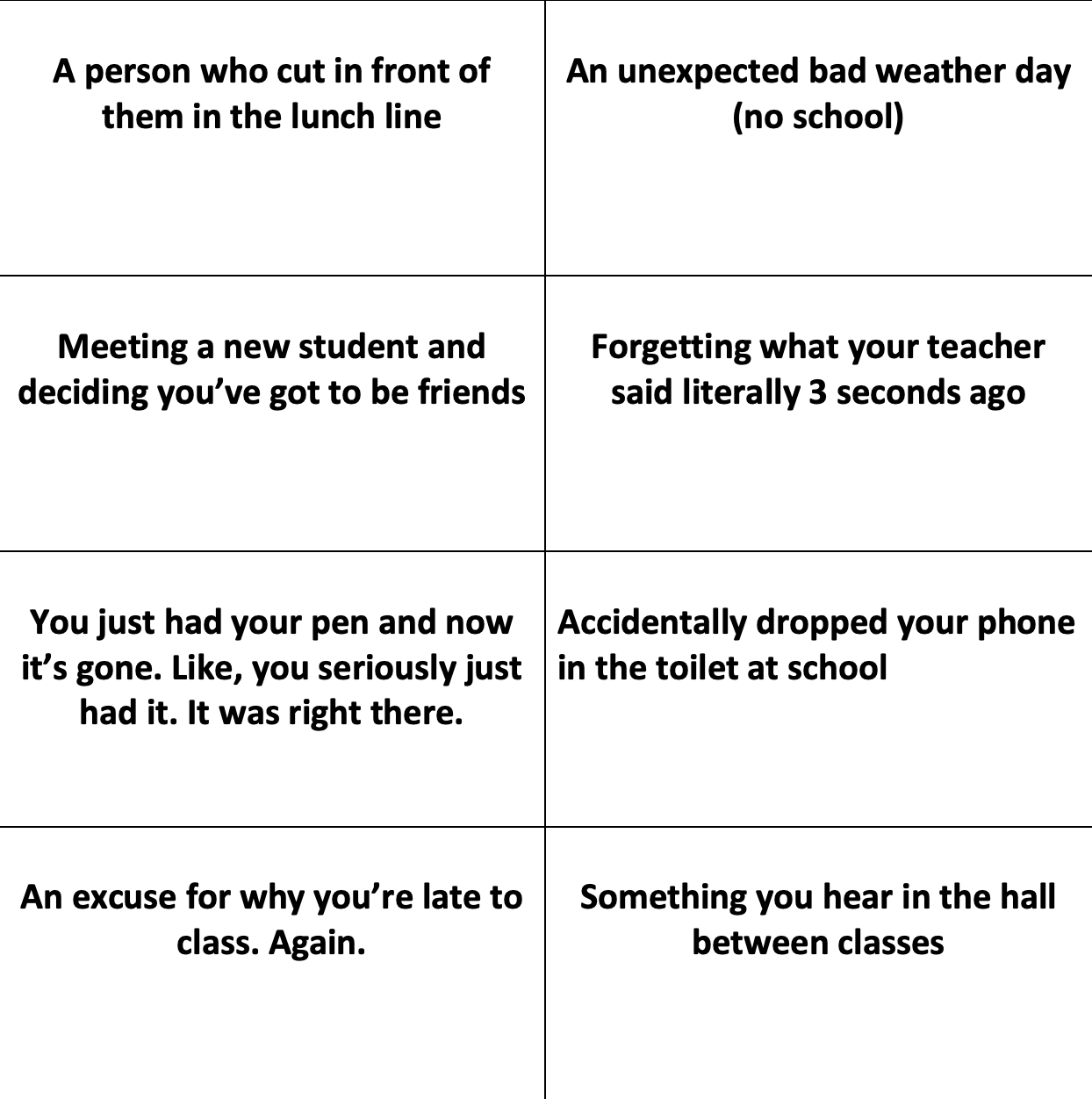
Basically, it’s a creative way to turn a random line from a novel into something purposeful and ridiculously fun.
Here’s how:
✅Place a stack of 5-6 novels for students to leaf through in this station.
✅Each student takes a novel from the stack.
✅Students each pull a card from the stack (the above is just a small set of examples from my own stack).
✅Flip through the novels to find a line of dialogue that humorously, nonsensically “matches” the scenario from the quote card.
It’s fun! And it gets books into the hands of your students right away, using them in a creative way.
👟 Prep Steps for Stations (What to consider ahead of time)
- Map your room — Think 5–6 stations total with no more than 5 students per station…and rotate them every 10–15 minutes. I gave you my 3 favorite stations already, so at this point you may have ideas for a couple more to bring your station total to that 5-6 recommendation I have. And whether your class time is 40 minutes or 90 minutes, you can run these stations all throughout the week as you work through your other first week of school obligations.
- Prep materials — Print scavenger hunt pages, task cards, or whatever you need for the actual stations. Hint: I NEVER use anything technology-based for my first week of school stations because I don’t want to start the first days praying that our school’s wifi will work (there are soooo many other things to pray about). I’ve been very glad more than once that my first week lessons weren’t affected by “I can’t believe our wifi went out” chaos.
- Set expectations for stations each time you run stations throughout the week — Quick whole-group intro + demo of “what talking sounds like in stations” is all you need, but you do need to share that reminder consistently.
- Time it — Gives you space to float and troubleshoot while subtly reminding students of how much time is left before the next station or next “thing” you’ll be moving on to.
- Movement — Will students actually move from station to station, or will students stay put and the materials will move instead? It’ll depend on your class size, your students, etc.
🧠 The MSELA Summit has sessions that cover this exact thing—actionable, easy-to-use systems that help you plan with confidence.
Get your free ticket to the MSELA Summit which is the annual back-to-school virtual conference specifically designed for Middle School ELA Teachers.
Click Here for the Dates + Details!

